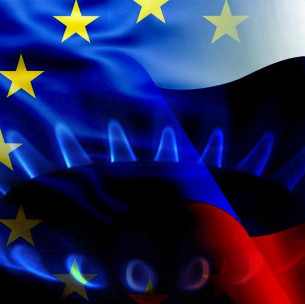On August 22, German Chancellor Angela Merkel will pay a visit to Kiev. It was not planned ahead, having only been announced about it a week ago, which further underlines the connection between the visit and Bundestag elections due on September 26.
Merkel won't run but remains interested in her own party's success, while opinion polls show that the CDU is having a hard time. In the election context, the sheer fact of the visit looks like a gesture towards Kiev, which aims to blunt the effect of criticizing the Federal government for having caused damage to Ukraine and strengthened Russia when letting the Nord stream 2 be accomplished.
The strongest criticism comes from the Greens as the CDU's chief rivals, but it does also exist among lawmakers representing all the mainstream forces (except for the Left and Alternative for Germany), including Frau Merkel's party. And earlier in the European Parliament, all the CDU/CSU members, as well as most other German deputies, voted for resolutions targeted against Nord Stream 2. Without reference to this circumstance, one cannot adequately assess violent language coming from official personalities towards Germany, like Ukrainian Ambassador to Berlin Andriy Melnyk, Secretary of the National Security and Defense Council Oleksiy Danilov, as well as President Zelensky himself. This plays along with the Greens and the entire anti-Russian segment of German politics in order to affect the future Bundestag configuration.
Ahead of her trip to Kiev, Merkel will visit Russia to meet with Russian President Vladimir Putin. Ukraine is also part of Berlin's announced schedule. Having first held talks with Putin, the German Chancellor would demonstrate Berlin's quest for guarantees of further Russian transit via Ukraine, as agreed with Biden in July. By all odds, Merkel will publicly emphasize her interest in this transit; the only question is whether Kiev will touch upon Germany's not going to let to use gas as a geopolitical weapon (in Russia she will probably be more diplomatic).
The practical importance of her Merkel-Putin talks for a dialogue with Zelensky is obvious. The Chancellor will mediate gas relations between Moscow and Kiev, and these negotiations will enable her to be more specific with Zelensky about preserving the Ukrainian transit.
Another thing is that one should not expect much specificities. It is not hard to assume that Merkel will at best bring vague hints about this from Russia. Moscow will obviously hold that there are still three years and four months before contract expires, so we must first conceive what gas demand is expected in Europe after 2025 (which is all too relevant with a view to the European Union's plans for a large-scale energy transition). Russia is also going to make it clear that a lot will depend on the political relations between Moscow and Kiev, as well as the Donbass issue settlement. The "blueprints" will unlikely inspire Kiev or entail any practical deeds: given Zelensky's appetites, he may hope that the future German government will start exerting more pressure on Russia on the issue.
Therefore, the only result of the meeting in Kiev to become immediately apparent may be an agreement on specific compensation projects to Kiev for the Nord Stream (the existence of which is stipulated by the US-German agreements, too). Thus, a question was asked at an August 13 government press conference in Berlin as to whether negotiations were underway with Ukraine on the production of hydrogen in that country or on renewable energy output expansion.
Spokesperson for the Ministry for Economic Affairs and Energy Nina Maria Gűttler said: "I'll give you an answer later." One can certainly assume there have been no negotiations yet or that Gűttler does not know about them. But conceivably, one imagines that Berlin wants to make a surprise and announce some agreements right in Kiev. Of course, this is the best option for Zelensky, although not necessary at all. Completing its cadence, the current Cabinet may well hand the solution of this issue over to the new government, but electoral purposes prompt the current coalition to demonstrate their rivals that the compensation issue is already being dealt with, especially since it will be not about charity, but about projects with the leading part played by German business.
Merkel will certainly talk about the Donbass both in Kiev and Moscow. In this regard, the Russian media and those opposed to Zelensky in Ukraine often state that Germany has begun demanding that Ukraine introduce the Steinmeier formula into its legislation, which deals with the procedure for activating the special status of the Donbass following an election there. And sometimes they pointedly recall that this demand came right after the Biden-Merkel agreements on the Nord Stream.
However, one can hardly share this optimism. Indeed, there is a statement by the German Foreign Ministry of July 22, timed to coincide with the anniversary of the Contact Group's approval of additional measures to boost the ceasefire, which virtually led to the longest lull in the Donbass but unfortunately came to an end since the beginning of this year. The statement reads as follows: "Ukraine must fulfill its obligations (assumed at the December 2019 Normandy Four summit in Paris – ed. note), for example, with regard to the implementation of the so-called Steinmeier formula in Ukrainian legislation.
However, the issue concerning this formula has recently become minor amid Kiev's plans to formalize an actual abandonment of the Minsk agreements by adopting the law on the state policy of the transition period. August 9 saw the project be registered by the Parliament's secretariat. Once it is adopted, Kiev will unlikely formally abandon the Minsk agreements, but their implementation will clearly become impossible.
Therefore, the key question is not whether Merkel will mention the Steinmeier formula in Kiev, but whether she will try to persuade Kiev to abandon this bill.









